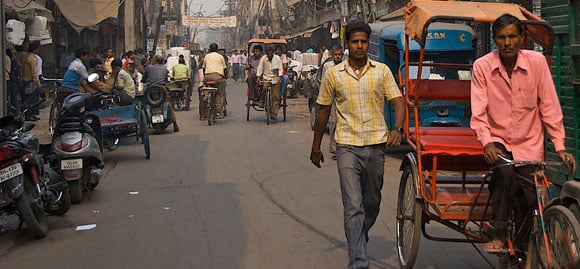Moving to India
Last updated on Nov 18, 2023
Summary: Expats and digital nomads move to India for a variety of reasons, including the country's rich culture, diverse landscapes, and low cost of living. The most popular cities for expats and digital nomads in India are Bangalore, Delhi, and Mumbai. People looking for a place to live in India can search online for rental listings, contact real estate agents, or look for shared housing options. Additionally, many expats and digital nomads find accommodation through online communities and networks.

What do I need to know before moving to India?
When we asked people what advice they would give someone preparing to move to India, they said:
"My advice is have someone that is familiar with the area and housing market find and negotiate the terms of the house. You are likely to get it cheaper and the best location," said one expat in Ahmedabad, India.
Answer Question & View More Answers
How do I find a place to live in India?
Please login to continue reading this article.
Not a member? Join Today (it's free).
About the Author
 Betsy Burlingame is the Founder and President of Expat Exchange and is one of the Founders of Digital Nomad Exchange. She launched Expat Exchange in 1997 as her Master's thesis project at NYU. Prior to Expat Exchange, Betsy worked at AT&T in International
and Mass Market Marketing. She graduated from Ohio Wesleyan University
with a BA in International Business and German.
Betsy Burlingame is the Founder and President of Expat Exchange and is one of the Founders of Digital Nomad Exchange. She launched Expat Exchange in 1997 as her Master's thesis project at NYU. Prior to Expat Exchange, Betsy worked at AT&T in International
and Mass Market Marketing. She graduated from Ohio Wesleyan University
with a BA in International Business and German.
Some of Betsy's articles include 12 Best Places to Live in Portugal, 7 Best Places to Live in Panama and 12 Things to Know Before Moving to the Dominican Republic. Betsy loves to travel and spend time with her family. Connect with Betsy on LinkedIn.
Additional Information:
- India Guide
- Healthcare & Health Insurance in India
- Members Talk about Healthcare & Health Insurance in India
- Best Places to Live in India
- Guide to Real Estate in India
- Pros & Cons of Living in India
- Cost of Living in India
- How to Get a Driver's License in India
- 15 Best Places to Live in India
- 10 Best Places to Live on the Coast in India
- Insider's Guide to the Health System in India
- 2024 Guide to Living in India
- Pros and Cons of Living in India 2024
- 2024 Guide to Moving to India

 India
India

